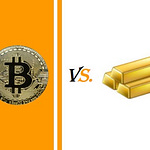Mark couldn’t believe it. He had been busy for sure, and his attention wasn’t always completely devoted to managing his cryptocurrency exchange. But still, he didn’t understand how so many Bitcoin could have just vanished from the exchange’s wallets. Had an employee stolen them? Had a hacker slipped past the exchange’s security measures? Had they been sent to the wrong address?
He could feel the walls closing in around him. He had tried to delay the inevitable for a couple weeks in order to give him time to try and find the missing Bitcoin. But time was running out. Protesters were dogging his every move. The media and law enforcement were sniffing around. And the Bitcoin market was tanking on expectations that Mt. Gox was about to fall apart.
There was nothing left to be done. Nothing but come clean and hope that the world didn’t do its worst to him. At this point, he didn’t have anything else but hope.
The above account is a dramatization that is loosely based on reported events surrounding the Mt. Gox Bitcoin Exchange and its operator, Mark Karpelès. As such, it should not be taken as completely factual.
Bitcoin: A Beacon of Hope
Dear Readers,
One of Bitcoin’s greatest strengths is the fact that it can be transferred nearly instantaneously across the world without the need to go through an intermediary or get a regulator’s permission. Such a transfer of fiat wealth is simply impossible. Banks and other financial institutions handle fiat transfers every step of the way and do so only with the blessing of regulators in every country in which they operate.
Although Bitcoin doesn’t need intermediaries, the vast majority of Bitcoin transfers occur with the help of centralized parties anyway. Humans are creatures of habit after all and hundreds of years of interacting with intermediaries has made it difficult to transition to a place without them. As a result, centralized cryptocurrency exchanges are the main way that most retail and institutional users interact with Bitcoin.
Some will argue that Bitcoin exchanges have many benefits. Users don’t need to manage, and potentially lose, their own private keys. They are able to access a huge pool of tradable currencies right from their phone or computer. And they have some sense of security that the person on the other end of their trade has been vetted by the exchange.
Whether or not you agree that those features are benefits, there are certainly plenty of shortfalls as well. Hacks are common in the industry and leave increasingly large numbers of victims in their wake. But perhaps none of them has had a bigger impact than that of Mt. Gox.
Mt. Gox: Building the World’s Bitcoin Exchange
The backstory of Mt. Gox is certainly more interesting than most. Originally setup as an online exchange for cards and accessories from the Magic: The Gathering game, the site intially found little success and sat basically unused for nearly four years. The site’s founder, Jed McCaleb, learned about Bitcoin in the summer of 2010 and decided to repurpose the Mt. Gox domain for use as a Bitcoin exchange. The site grew quickly, requiring more time than what McCaleb was willing to dedicate to it, and he decided in the spring of 2011 to sell it to a Frenchman named Mark Karpelès.
The site saw massive growth under Mark’s guidance. At one point, Mt. Gox was processing trades totaling over one hundred and fifty thousand Bitcoin per day and handled around seventy percent of Bitcoin’s global trading volume. Times were good for Mt. Gox and it’s estimated that the exchange raked in tens of thousands of Bitcoin as trading fees. But the good times would only last so long.
A Slippery Slope To Insolvency
When people think about Mt. Gox, they think about the massive hack that bankrupted the exchange and tanked the Bitcoin market. And that certainly is the biggest part of the story. After all, it was unprecedented at the time.
In early February 2014, Mt. Gox halted all Bitcoin withdrawals (supposedly temporarily) and indicated that it would use the time to perform technical reviews. Over the course of the next several weeks, the company tried to blame a variety of external factors for the halt, including an issue with transaction malleability that the company described as:
A bug in the bitcoin software [that] makes it possible for someone to use the bitcoin network to alter transaction details to make it seem like a sending of bitcoins to a bitcoin wallet did not occur when in fact it did occur.
However, no amount of posturing could change the truth: Mt. Gox had lost its customers’ Bitcoin…a lot of its customers’ Bitcoin. The company came clean at the end of February 2014 and divulged the loss of around 750,000 Bitcoin belonging to its customers and 100,000 of its own Bitcoin from theft over the course of several years.
Perhaps in the grand scheme of things, the Mt. Gox theft shouldn’t have been a big surprise. Due to the exchange’s size in the marketplace, it made quite the target. But more importantly, it wasn’t the first time that Mt. Gox had experienced security issues. In fact, in a single week in June 2011, Mt. Gox experienced three separate security incidents:
Mt. Gox reported the theft of 25,000 Bitcoin from hundreds of customer accounts.
Mt. Gox’s user database leaked and was listed for sale on the internet.
The price of Bitcoin crashed to $.01 each, only on Mt. Gox’s exchange, due to a number of fraudulent trades carried out by a hacker.
Mt. Gox’s history was fraught with security incidents and mismanagement of customer assets and information. Is it any wonder that the exchange eventually met its downfall?
Bitcoin: A Lesson In Resiliency
As could be expected after the world’s largest Bitcoin exchange imploded, the Bitcoin price experienced a significant amount of turbulence, dropping by around thirty-six percent between February and March of 2014. However, Bitcoin’s strength is not tied to any one exchange. Its value is not defined by the security of the companies that interact with it. Bitcoin’s monumental growth in price, utility, and user count since the Mt. Gox fiasco is a testament to its longevity and proof of its antifragility.
Read the next article in this series:
Scams.
Rugpulls.
Shady companies that will take away your hard-earned money the first chance they get.
That’s what most content creators in the Bitcoin and Crypto spaces offer their communities in exchange for the *free* content they promote in newsletters, on talk shows, on social media, and anywhere else they can peddle their wares.
YOU DESERVE BETTER.
You deserve quality Bitcoin education that isn’t driven by a need to sell you something that will leave you worse off. You deserve thoughtful analyses of Bitcoin basics and current events that leave out the biases that permeate affiliate-driven content platforms. You deserve a community that puts you first, no matter what.
We’ve built the HiFi Bitcoin community together as a place where quality Bitcoin education comes without any hidden agenda. A place where you come first, always.
If you believe that Bitcoin education should be available to everyone without bias and without ulterior motives, I ask you to please consider supporting me and the work I’m doing for the Bitcoin community through a premium membership. Every contribution increases my ability to cut through the noise and find the truth about Bitcoin with you.
A Special Bonus For Premium Members
In my new book, The Ultimate Pocket Bitcoin Glossary, I walk you through 30 of the most important terms you need to understand in order to get ahead in your Bitcoin journey. My hope is that it can be used to educate yourself about Bitcoin and as a quick reference when you’re trying to help others understand why you’ve chosen to purse a passion for Bitcoin.
Ready to read it yourself?
Premium subscribers of The HiFi Bitcoin Letters receive access to The Ultimate Pocket Bitcoin Glossary at no extra charge:
Free subscribers and non-subscribers can purchase The Ultimate Pocket Bitcoin Glossary, without the commitment of subscribership, in the HiFi Bitcoin Shop, as a PDF:
Wish You Could Easily Take The Podcast With You?
Can’t Get Enough Bitcoin In Your Life? Follow Me On Social Media:
Bitcoin Roundup 🤠
Bitcoin Billionaires: Apple co-founder Steve Wozniak claims that Bitcoin is “mathematical purity” and lauds its advantages over fiat currencies. Read more
Bitcoin America: Bitcoin mining is revitalizing the small town of Rockdale, Texas where two of the largest mining companies in the world have set up shop side by side. Read more
Bitcoin Revolution: Latinx communities are adopting Bitcoin in a big way to help transfer money, store wealth, and much more. Read more
Into the Twitterverse 🐥
It can seem like credit cards are money, but they’re not. They’re just an incarnation of fiat currencies:

Maximalist or not, it’s hard to deny that the impact of Bitcoin on the world has been anything but monumental:


🙋🏽♂️Did you enjoy this edition of The HiFi Bitcoin Letters?
This 3-question survey is your chance to tell me how I can improve the newsletter for you. Click here.
This is not financial or business advice. This newsletter and related content are for informational purposes only. Cryptocurrencies, stocks, and similar assets can be risky. Always do your own research before making any sort of investment.

















Share this post